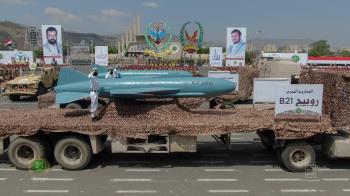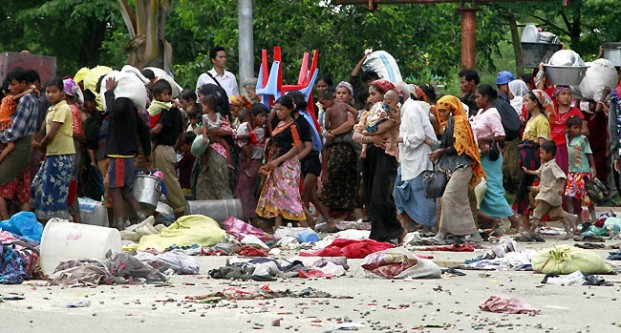Alwaght-Myanmar must protect the rights of its Rohingya Muslim minority, Organization of Islamic Cooperation (OIC) has said, urging the country to work with neighboring Muslim-majority countries to tackle a refugee crisis.
"Myanmar should sit with Bangladesh, Indonesia and Malaysia to find a roadmap for the solution of the crisis," said OIC Secretary General Yousef bin Ahmad Al-Othaimeen. The Pan-Islamic body represents 57 states and acts as the collective voice of the Muslim world.
"We call on the Myanmar government to ensure human rights for the Rohingyas," Othaimeen told reporters during a four-day visit to Bangladesh's capital of Dhaka.
"Myanmar can't deny the human rights of Rohingyas. We also call on the Myanmar government to ensure citizenship for the Rohingyas," he said.
In a separate meeting with Bangladesh's Prime Minister Sheikh Hasina, he said that a solution must be found through discussions between Buddhist leaders from Myanmar and Muslim leaders from Bangladesh.
"Religious leaders from both the countries should attend in such discussions to help solve the Rohingya issue," he said.
The prime minister reiterated her government’s persistent plea that Myanmar take back its citizens. Almost 400,000 Rohingya refugees live in Bangladesh, she said.
Othaimeen is also expected to visit Rakhine Muslims in the Kutupalong camp and surrounding areas in the southern resort town of Cox’s Bazar on Friday, Bangladeshi foreign ministry officials said.
About 75,000 people have fled to Bangladesh after a military crackdown, with accompanying allegations of rape, torture and extrajudicial killings by security forces, followed an attack on a Myanmar border guard post on Oct. 9.
Aung San Suu Kyi's fledgling administration has denied most of the allegations and is refusing access to a United Nations panel of experts, saying its mission will aggravate the situation on the ground in the western state of Rakhine. .
The United Nations has established a fact-finding mission to investigate crimes against humanity committed by Myanmar's military during renewed brutal crackdown against Muslims which started last October.
The country’s de-facto leader, Aung San Suu Kyi, who was awarded the Nobel peace prize in 1991, has been criticized by more than a dozen fellow laureates for the armed response. They wrote an open letter to the UN Security Council warning of a tragedy “amounting to ethnic cleansing and crimes against humanity” in Rakhine state.
Rakhine State in west Myanmar has seen the most serious violence perpetrated against Muslims in predominantly Buddhist Myanmar since the military began to end its decades of strict rule. Reports indicate that thousands of Rohingya Muslims killed and hundreds of thousands displaced there in attacks by government forces and extremists Buddhists since in 2012 in a deliberate state-backed policy of ethnic cleansing and genocide.



























